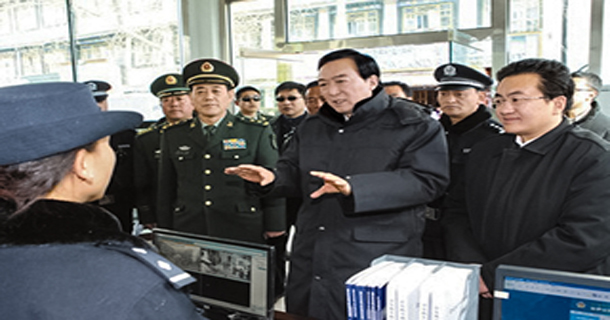Chinese President Xi Jinping’s campaign to combat corruption in China has resulted in thousands of Chinese officials being investigated and jailed for misusing power. However, in Tibet, the anti-corruption campaign focuses on religion too. In a statement released by party officials in the Tibet Autonomous Region (TAR), the corruption campaign has been interpreted as another way to target religion, including Buddhism, and people who believe in religion.
Chen Quanguo, the Party Secretary of the TAR vowed to clamp down on “officials who have an incorrect view on minority people’s (issues) and profess no religious belief but secretly believe.” He added, “The party would go after officials who follow the Dalai Lama, go on pilgrimages to worship him, listen to religious sermons or send their children to schools organised by followers of the Dalai Lama.”
There are reports that people there believe that party officials are deliberately misinterpreting the campaign against corruption to target Tibetans and shield themselves from the actual campaign. Since China’s anti-graft initiation in 2012, only 15 Tibetan party officials throughout the TAR have been investigated and proved guilty for minor embezzlement and corruption schemes by anti-graft authorities.
His Holiness the Dalai Lama has consistently stated that he wants only genuine autonomy for Tibet, however China continues to condemn His Holiness and call him a “separatist” and “monk in a wolf’s robe”, thus blaming him for the unrest there and the people’s continued adherence to Buddhism, which they are apparently now seeking to portray as “corruption” under this campaign. China portrays to the world that Tibet was “peacefully liberated” in 1950 and insists that today Tibet thrives on prosperity and equality.
International human rights groups and the Tibetan Government-in-exile say that the present situation in Tibet is far from a peaceful liberation, nor is it thriving on equality, citing the evidence of the protests in Tibet under the Chinese. Since 2009, 143 Tibetans have self-immolated inside Tibet as a form of protest against Chinese rule. The latest was Tashi Kyi, a mother of four sons who self-immolated on the night of August 27 this year in Gansu province, TAR.





 Print
Print Email
Email